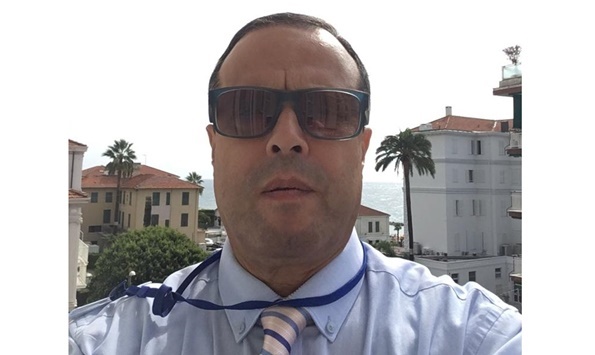The Third Annual Palestine Forum kicked off Saturday in Doha, in the presence of HE Sheikh Abdulrahman bin Hamad al-Thani, Minister of Culture, HE Maryam bint Ali bin Nasser al-Misnad, Minister of State for International Cooperation, HE Dr Mohammed bin Abdulaziz bin Saleh al-Khulaifi, Minister of State at the Ministry of Foreign Affairs, and a number of ambassadors and heads of diplomatic missions.
Organised by the Arab Center for Research and Policy Studies in cooperation with the Institute for Palestine Studies, the forum will conclude on January 27.
The forum is one of the most prominent annual academic events that brings together a group of the most prominent specialists and researchers in the Palestinian cause from all over the Arab world and the world at large, to discuss the most prominent Palestinian issues, and emphasise the importance of this issue and its centrality at the Arab and international levels.
The convening of the current session at this historical moment is of critical importance, because the war of extermination that took place is unparalleled in modern Palestinian history, and is the most far-reaching in terms of the killing, destruction and displacement that befell the Palestinian people in the Gaza Strip.
The forum comprises seven sessions, each of which contains four parallel tracks, and includes three public seminars distributed over the days of the forum, plus a closed workshop on the third day, that would address the various dimensions of the Israeli aggression on the Gaza Strip and the West Bank, and the challenges facing the Palestinian national project.
Ayat Hamdan, the forum coordinator and researcher at the Arab Center, began the first day with an opening session in which she spoke about the importance of holding this session in light of the complex political circumstances experienced by the Palestinian people.
Tarek Mitri, Chairman of the Board of Trustees of the Institute for Palestine Studies, in opening remarks emphasized the importance of the meeting for dialogue and reflection. He pointed out that this meeting comes after the ceasefire came into effect, while pointing to the fears that have not dissipated in Gaza or the West Bank, and because the Israeli aggression has not subsided. Mitri stressed that "we have the right to fear because what the American government has taken from Israel in the Gaza Strip, it is giving it back by allowing a free hand in the West Bank".
He said that it is no longer possible to hide the Palestinian people from the world’s field of vision, and that the conflict is no longer a local one that can be ignored or used as a sterile refrain in speeches that lead nowhere. He spoke about the work of the Institute for Palestine Studies in documenting the war of extermination in the fields of education, health, culture, and agriculture; to declare the truth as an immortal right.
Azmi Bishara, Director General of the Arab Center for Research and Policy Studies, delivered the opening lecture of the forum. He discussed the challenges facing Palestinians everywhere, especially in the Gaza Strip and the West Bank, the effects of the war of extermination, and how to deal with them to prevent the success of the Israeli vision of transforming its current predicament, resulting from its practice of genocide and the establishment of an apartheid system, into a purely Palestinian predicament. He stressed the importance of unifying the Palestinian ranks under a comprehensive national umbrella to take control of matters and translate international and Arab solidarity into political action; otherwise the Palestinian cause will be moving in a tunnel at the end of which there is no light.
The first session was held in four parallel tracks. The first track, “International Law and the War of Genocide on Gaza”, the second track, “The War of Genocide on Gaza and Cultural and Material Destruction”, the third track, “The Aggression on Gaza in the Arab Media.” The second session was also held in four parallel tracks. The first track was “Stations in Palestinian History from the Nineteenth Century to the Nakba.” The second track included “The Israeli Prison System: Experiences and Critical Visions.” The third track, “Palestine and Global and Arab Solidarity.” The fourth track was on “Gaza and the ‘Butterfly Effect’: The Impact of the Israeli War on Gaza on the Regional and International Systems.”
At the end of the first day, the forum organised a general symposium titled “The War on Gaza and the Fronts of Support for Palestine.” The Forum will continue in a similar format, with sessions held in parallel tracks. Two public seminars will be held on the second and third days respectively: “Trump’s Policy in His Second Term towards the Palestinian Issue: What Prospects?” and “The Israeli Aggression on Gaza: Scenarios after the War of Extermination.” On the third day, a closed workshop will be held entitled “Gaza under Hamas Rule (2007-2023).”

From left HE Dr Mohammed bin Abdulaziz bin Saleh al-Khulaifi, HE Sheikh Abdulrahman bin Hamad al-Thani, Dr Azmi Bishara, HE Maryam bint Ali bin Nasser al-Misnad, attending the opening session of the forum Saturday.

Dr Azmi Bishara, Director General of the Arab Center for Research and Policy Studies, delivering the opening lecture

